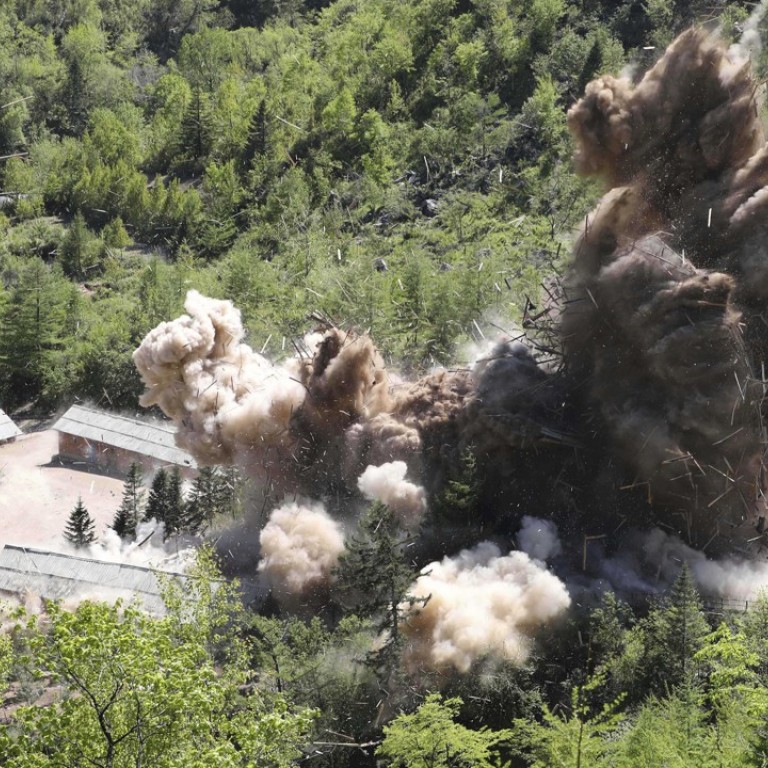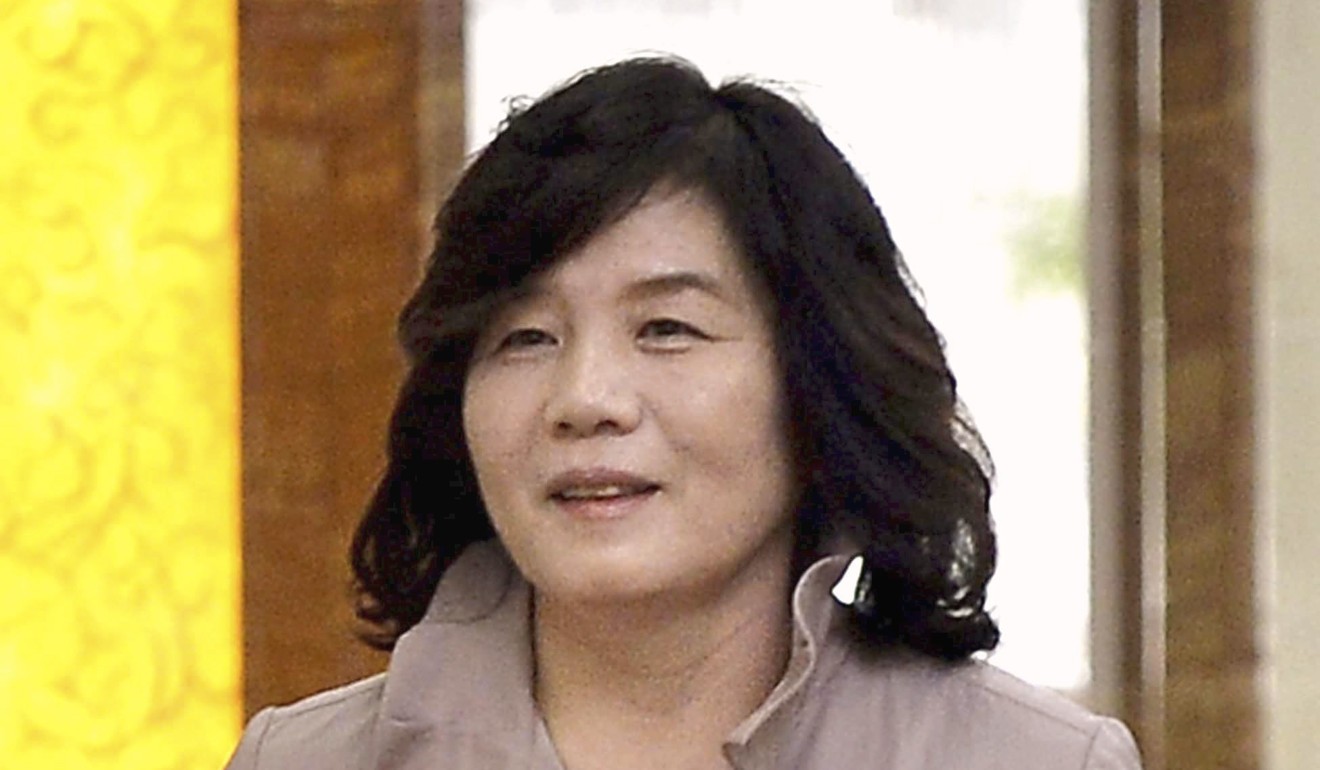
North Korea looks to get China, Russia on side before denuclearisation talks with US
Pyongyang’s vice-foreign minister Choe Son-hui to hold talks in Beijing and Moscow, Korean Central News Agency says
North Korea will look to consolidate support for the lifting of economic sanctions during its latest talks with China and Russia, while also strengthening its bargaining position on the denuclearisation issue ahead of US Secretary of State Mike Pompeo’s visit to Pyongyang this weekend, observers said.
Choe Son-hui, North Korea’s vice-foreign minister who is responsible for handling negotiations with the US on denuclearisation, left Pyongyang on Thursday, according to a report by the Korean Central News Agency.
She was expected to hold talks with officials in Beijing before heading to Moscow for more of the same, the report said, adding that representatives of all three countries would then sit down together. It did not elaborate.
Mike Pompeo trip a chance to ease tensions as China-US ties ‘near rock bottom’
The announcement was made ahead of Pompeo’s visit to Pyongyang on Sunday, where he is expected to negotiate a deal with North Korean officials on the details of the denuclearisation process.
Wi Sung-rak, a former South Korean ambassador to Russia and visiting professor at Seoul National University, said that bringing an end to the sanctions on Pyongyang – imposed both by the United States unilaterally and the United Nations as a whole – was favourite to top the agenda for the trilateral talks.
“North Korea, China and Russia are most likely to discuss the lifting of the sanctions and to converge their positions,” he said, adding that the trilateral talks would be a first for the three countries.
“China and Russia have already expressed their support for lifting [them] at recent UN Security Council meetings,” Wi said.
China – not North Korea – is our biggest threat to peace, South Koreans say
The staging of the three-way talks might also be “an expression of dissatisfaction at the US [for its continued ‘maximum pressure’ policy]”, he said.
China and Russia were at odds with the US during a UN Security Council meeting on the sanctions last month, at which Washington insisted they remain fully in place until there has been a “complete and irreversible” denuclearisation in North Korea.
Vasily Kashin, a senior research fellow at the Centre for Comprehensive European and International Studies at the National Research University in Moscow, said Choe was likely to seek support for a more gradual denuclearisation process, which would give Pyongyang more bargaining power in its talks with the Washington.
It would also be in Russia and China’s interests to give their “support for the gradual resolution of the nuclear issue on the Korean peninsula, tying the disarmament to the removal of sanctions”, he said.
“That would make the North Korean position in dialogue with the US stronger,” he said.

Cheong Seong-chang, a senior analyst at the Sejong Institute in Seoul, said North Korean leader Kim Jong-un might also be preparing for the transfer of nuclear warheads during the denuclearisation process, which “may emerge as a major issue”.
“North Korea may prefer to transfer them to China or Russia, rather than to the US or UK … as it is still cautious about the West,” he said.
“Likewise, it may prefer to have China and Russia as monitoring nations during the verification process as they are showing some understanding of North Korea’s position … [so] it is likely to discuss some of those practical measures on denuclearisation.”
Zhang Baohui, a professor of political science and director of the Centre for Asian Pacific Studies at Lingnan University in Hong Kong, said Pyongyang was possibly looking to bolster ties with Beijing and Moscow as a way to protect the Kim regime.
“It may want to [secure] China and Russia’s support in case the denuclearisation process with the US fails,” he said.
US Secretary of State Pompeo ‘optimistic’ about progress in denuclearisation talks during upcoming trip to North Korea
Kashin said that the visit by Choe could also benefit Moscow.
“Russia has some specific interests too,” he said. “In the short term, it wants to increase economic cooperation [with Pyongyang] and use the North Korean workforce within the framework that is permitted by the UN Security Council resolutions.
“In the long term, it wants to create new infrastructure projects connecting Russia and South Korea.”
Choe’s visit represented the “new reality”, he said.
“Russia-US relations have already been destroyed, and Sino-US relations are being destroyed. It is a great opportunity for North Korea to deepen its relations with Moscow and Beijing.”

